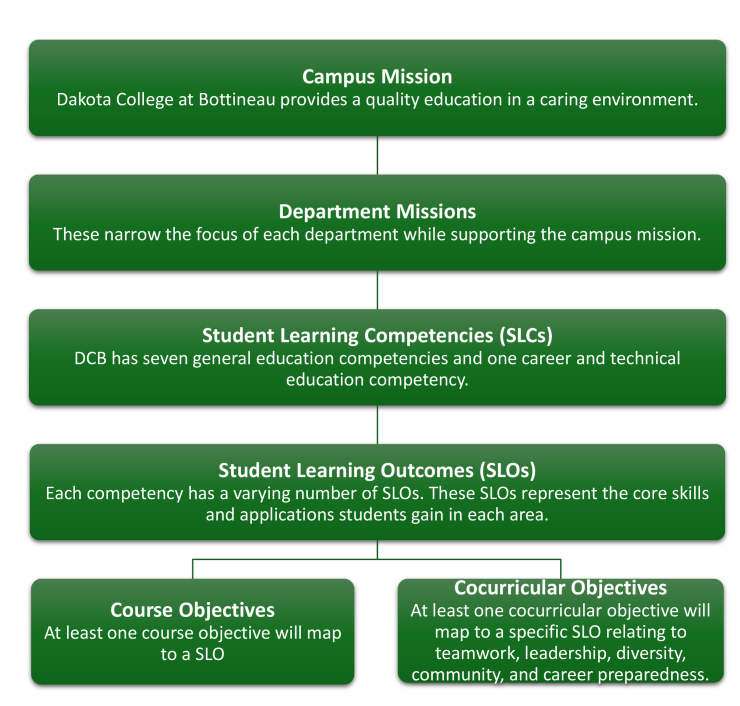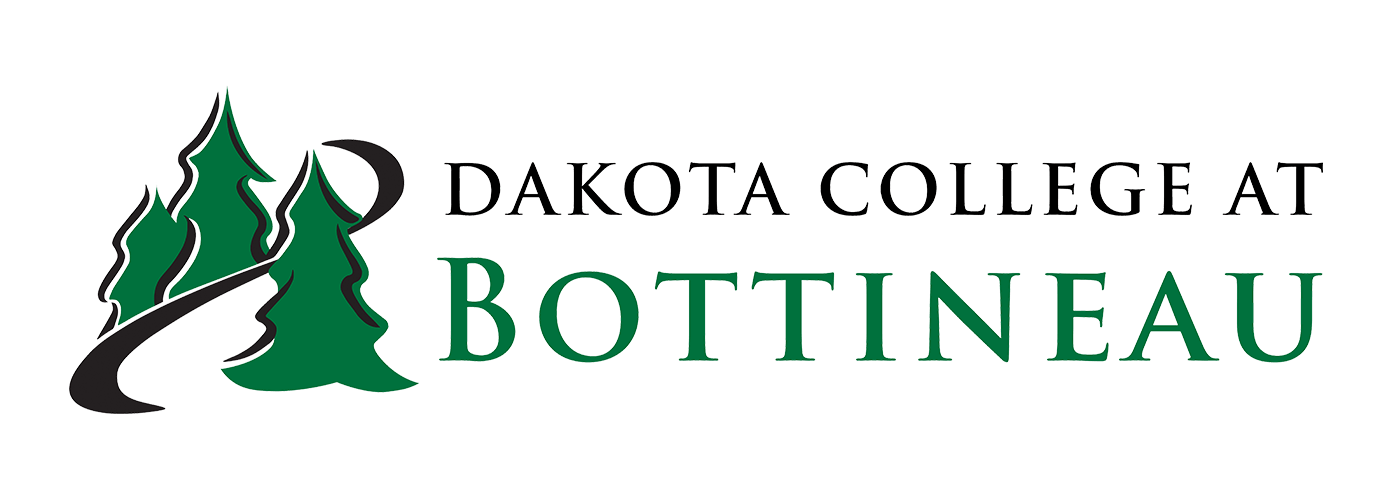Dakota College at Bottineau (DCB) assesses student learning at the academic and cocurricular levels to ensure quality of offerings on campus and online. The purpose of academic assessment is to improve the overall educational experience at DCB. This is achieved through assessment activities based on institutional values that aim to produce relevant and functional data for aligning curricular design, course content, and pedagogical approaches with DCB’s mission and values. The general process follows a cyclical loop of planning, data collection, reporting, and feedback, so that results of assessments can be drivers for continuous improvement in academic courses and cocurricular activities.

Linda Burbidge, PhD
Co-Director of Assessment
701-228-5442
linda.burbidge@dakotacollege.edu

Tracy Chisholm
Co-Director of Assessment
701-228-5424
tracy.chisholm@dakotacollege.edu

Newsletters
General Education Competencies
Nature
Competency 1: Identifies the interrelationships between humans and their environment
- Learning Outcome 1: Applies the scientific methods of inquiry
- Learning Outcome 2: Demonstrates an understanding of natural environment
Technology
Competency 2: Demonstrates technological literacy
- Learning Outcome 1: Demonstrates knowledge of digital literacy.
- Learning Outcome 2: Demonstrates effective use of technology for communicating, organizing, and presenting information.
- Learning Outcome 3: Identifies appropriate application software for real-world issues.
Competency 3: Demonstrates mathematical understanding
- Learning Outcome 1: Utilizes appropriate mathematical techniques.
- Learning Outcome 2: Employs critical thinking skills.
Beyond
Competency 4: Communicates effectively
• Learning Outcome 1: Write effectively
• Learning Outcome 2: Integrates information sources effectively
• Learning Outcome 3: Demonstrates effective oral communication skills
Competency 5: Employs the principles of wellness
• Learning Outcome 1: Demonstrates physical wellness
• Learning Outcome 2: Demonstrates healthy lifestyle
Competency 6: Demonstrates knowledge of social structures
• Learning Outcome 1: Examines the experience of the individual
• Learning Outcome 2: Examines the world of human diversity
• Learning Outcome 3: Recognizes human social structures
Competency 7: Understands concepts of arts, languages, humanities, and society
• Learning Outcome 1: Analyzes the interconnectedness of art, literature, society, and culture.
• Learning Outcome 2: Interprets the cultural impact of the Humanities on contemporary society.
Career and Technical Education (CTE) Competencies
DCB has two CTE competencies for all Career and Technical Education departments.
Students will:
• Employ industry-specific skills in preparation for workplace readiness
• Combine general education and vocational skills curriculum.
Each program has unique student learning outcomes tailored to the specifics of the program.
Cocurricular Assessment
Cocurricular programming at DCB seeks to enhance academic learning and provide a greater understanding of human diversity through community involvement, leadership opportunities, team building skills, and career readiness experiences.
- Competency 4: Communicates Effectively (leadership/teamwork) a. Learning Outcome 4: Collaborates with others.
- Competency 6: Demonstrates knowledge of social structures (diversity) a. Learning Outcome 2: Examines the world of human diversity.
- Competency 6: Demonstrates knowledge of social structures (community) a. Learning Outcome 3: Recognizes human social structures.
- CTE Competency 1: Employ industry-specific skills in preparation for workplace readiness (career preparedness)
